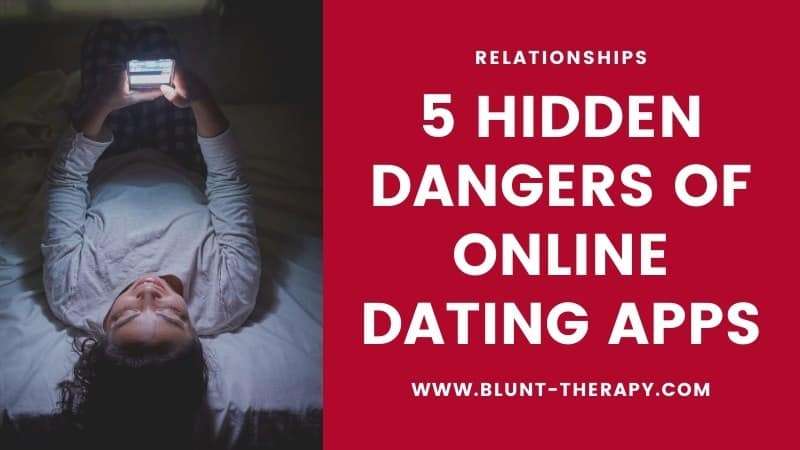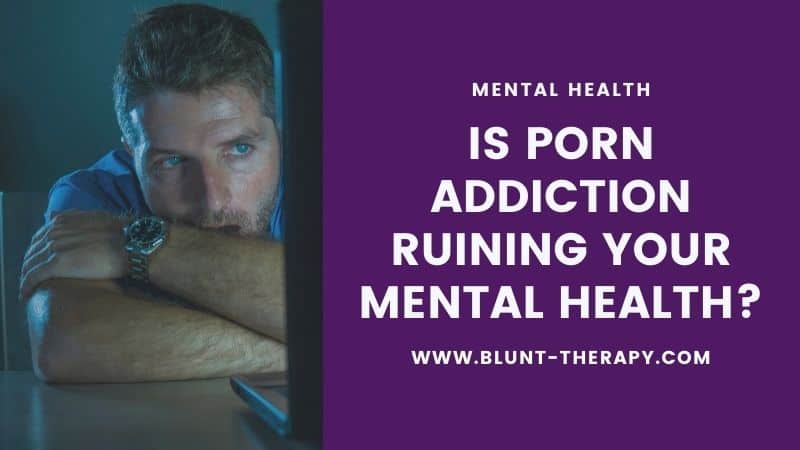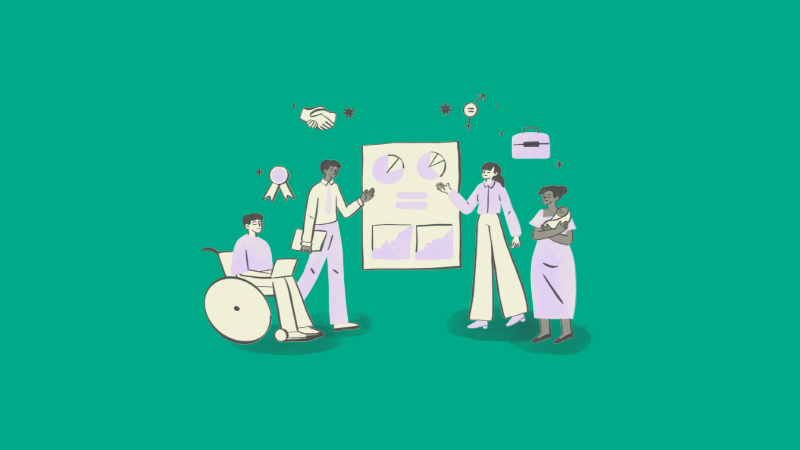Table of Contents
Affiliate link notice: As an affiliate of BetterHelp and other third-party vendors, We will receive compensation if you make a purchase using the links provided on this page. For more information, visit our disclosure page.
If you experience anxiety, you’re not alone. Research suggests that anxiety is the most common mental health challenge in the U.S., affecting 40 million adults. In fact, 31% of people will experience some form of anxiety during their lifetimes.
I’m definitely included in this statistic. The good news is that there are tools to teach you how to develop coping skills for anxiety so that you can live a calmer and more enjoyable life.
For example, have you heard of the 3-3-3 rule for anxiety? It’s one of the most effective coping skills for anxiety you’ll come across. And anyone can do it.
But before we get into a discussion about coping skills, let’s take a moment to define some terms. Namely, what do I mean by “anxiety”?

What is anxiety?
Anxiety is a nervous disorder marked by a state of excessive worry and apprehension. While it can present in myriad ways, it is typically associated with compulsive behavior, intrusive thoughts, and fear.
There are a number of different types of anxiety that have various levels of severity. From panic attacks to Post-Traumatic Stress Disorder, social anxiety to obsessive compulsive disorder, anxiety manifests in people’s lives in a number of ways that can affect their ability to function and experience fulfillment.
General Anxiety Disorder (GAD) is the most common form of anxiety and includes symptoms like:
- Feeling restless, irritable, and on-edge
- Frequently feeling tired
- Difficulty with focus and concentration
- Constant worry
- Muscle tension and headaches
- Inconsistent sleep patterns
If you’re experiencing any or all of these symptoms, you may be suffering from anxiety. The good news is that you can learn how to develop coping skills to improve your life.
What causes anxiety?
Everyone experiences anxiety differently. It’s important to begin to witness your own anxiety and understand its triggers so that you can treat it with wisdom and compassionate care. The causes of anxiety are numerous:
- Traumatic experiences from your past or childhood
- Economic, social, or familial stress in your present life
- Physical and mental health management
- Side effects from drugs and medications
- Nutritional choices like sugar and caffeine
- Personality traits and genetics
- Social injustices like racism, sexism, homophobia, and transphobia
Observing your anxiety is one great way to teach yourself how to develop coping skills to manage your feelings.
How do you develop coping skills for anxiety?
The hopeful news is that anxiety disorders are highly treatable. There are a number of ways to reduce your anxiety and feel more relaxed.
Lifestyle
First, nutrition, exercise, and community support are central to positive health outcomes, especially mental health improvement. Staying away from foods that trigger your anxiety, while replacing them with joy-filled eating practices can keep your nervous system calmer. It can also be beneficial to find your favorite way to engage your body in movement and commit to it as your schedule allows. Loved ones who are empathetic and supportive can also help you with anxiety management.
Therapy and Coaching
Therapy and coaching can also be a great way to manage anxiety. Cognitive Behavioral Therapy (CBT) has been proven to be especially effective. A present and compassionate coach can teach you how to develop coping skills for anxiety and then check-in with you frequently to track and celebrate your improvements.
Medications
Medication, alongside therapy or coaching, can be another method to relieve anxiety symptoms. There are four main categories of medication that a psychiatrist or doctor may prescribe to treat anxiety:
- Selective serotonin reuptake inhibitors (SSRIs): These medications increase serotonin levels in the brain, which may help to improve mood.
- Serotonin-norepinephrine reuptake inhibitors (SNRIs): These medications, such as venlafaxine, increase serotonin and norepinephrine levels in the brain, improving brain chemistry and communication.
- Benzodiazepines: These medications, usually only used short-term, treat physical symptoms of anxiety by reducing tension and promoting relaxation.
- Tricyclic antidepressants: These medications help treat mood and physical symptoms. However, they do have some serious side effects.
Complementary and Alternative Medicines (CAM)
There are a number of other forms of treatment for anxiety that are also worth exploring.
- Art: Creative activities can stimulate different parts of the brain and engage the entire body helping you to self-express and feel relieved.
- Acupuncture: The practice of acupuncture, or the insertion of needles in specific points throughout the body, restores the balance of Qi in the body. In ancient Chinese medicine, Qi regulates the health of the body by free movement through pathways or meridians. If the natural flow of Qi is blocked, we begin to suffer. Acupuncture has been proven to relieve anxiety.
- Meditation: Meditation can help to teach the brain to stay calmer during stressful situations through daily practice.
- Deep Breathing: Deep breathing exercises can instantly bring the body back to a state of calm.
Sometimes, however, you may not have the time or ability to stop what you’re doing in an anxiety-ridden moment and practice one of these treatment methods. So, how do you cope with crippling anxiety when you just have to keep on keeping on with your day? Try the 3-3-3 rule for anxiety.
What is the 3-3-3 rule for anxiety?
The 3-3-3 rule for anxiety is a quick trick to get you back in your body to experience relief. Try practicing this tool when you’re not experiencing symptoms to familiarize yourself with it. Think: See. Hear. Touch.
Rule 1: Name three things you see.
Look around the room and name three things that you see. Maybe a book, a chair, or a table.
Rule 2: Name three things you hear.
Then, listen attentively to three things that you hear. Is music playing? Or are the birds chirping? Can you hear steps or a fan?
Rule 3: Move three parts of your body.
Lastly, move three parts of your body. Wiggle your arms or shake a leg. Stretch your neck or take a deep breath.
The 3-3-3 rule for anxiety is a simple way to shift your focus from whatever you are anxious about back to the present moment. It can help you to disengage from negative feelings and thoughts by bringing your attention to your embodied experience.
Final Thoughts
The 3-3-3 rule for anxiety is a great tool to feel better in the moment. However, it’s always best to meet the challenges of mental health management with a multi-dimensional approach. This is especially true if you manage severe anxiety that inhibits daily functioning and fulfillment.
There is no silver bullet solution for anxiety – or for any other form of mental illness. Most people learn effective ways to manage their anxiety through a variety of interventions, from diet and exercise to therapy, medication, and lifestyle changes. But while you are making these efforts, it’s a good idea to have a few go-to ways to manage your anxiety in the here and now. The 3-3-3 rule is now one of them!
What are some other ways you have learned to manage your anxiety? Leave your thoughts in the comment section below!
MindBar offers affordable and accessible mental health classes taught by expert therapists and coaches. We offer a number of classes that focus specifically on relieving stress and anxiety. Become a member today to start taking classes like Getting Out of Survival Mode by Amanda Armstrong. If you love a teacher, you can book a session directly with them for individual or group coaching!










